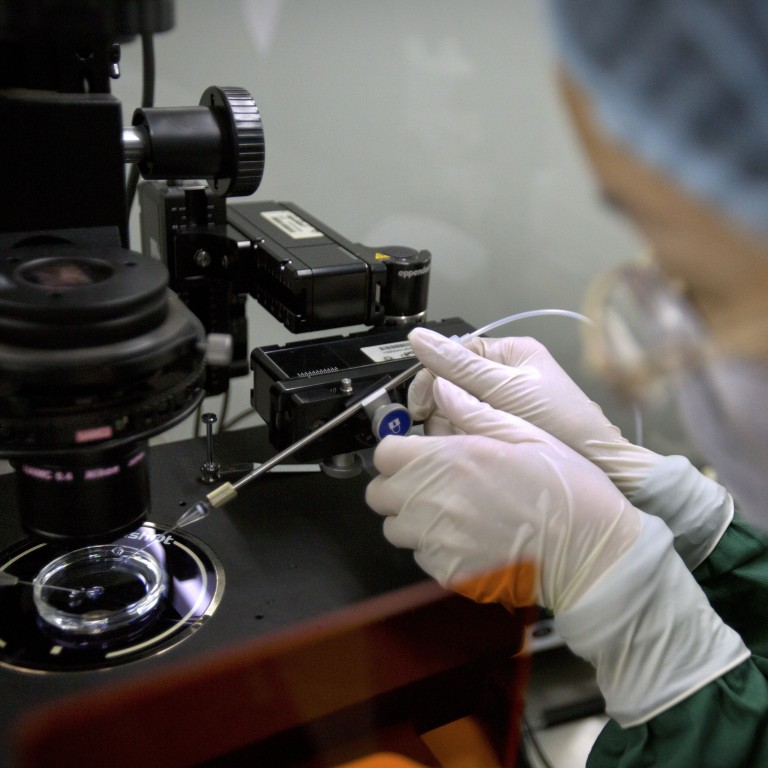
China drafts gene editing rules after ‘Frankenstein’ He Jiankui’s embryo experiments
- Such technologies could be classed as high-risk and placed under the authority of the country’s State Council
- It was claimed Chinese scientist He had altered the DNA of twin girls born in November, provoking ethical concerns
China has unveiled draft regulations on gene editing and other potentially risky new biomedical technologies after a Chinese scientist’s claim of helping to create gene-edited babies upset the global science community.
Under the proposed measures, released on Tuesday, technology involving gene editing, gene transfer and gene regulation would be categorised as “high-risk” and placed under the authority of the State Council, China’s cabinet.
The draft measures follow claims in November from scientist He Jiankui that he had altered the DNA of twin girls born that month using a powerful new tool. The technology, called CRISPR-Cas9, makes it possible to operate on DNA to supply a desired gene or disable one that was causing problems.
The revelation that it may have been used to conceive children elicited widespread outcry over the procedure’s ethical implications.
Gene editing for reproductive purposes is effectively banned in the United States and most of Europe. In China, ministerial guidelines prohibit research on embryos that “violates ethical or moral principles”. Ethical guidelines published in 2003 say gene editing is permitted for research purposes, but that the experimental embryo cannot be nurtured for more than 14 days.
He Jiankui said he had edited the babies’ genes in the hope of making them resistant to the AIDS virus, because their father was HIV-positive. China immediately halted He’s experiments after his announcement.
In an interview with Associated Press the month before his project was publicised, He said he believed gene editing of human embryos resulting in live births was legal in China because the country had no law specifically forbidding it.
The scientist breached national guidelines and will be punished for any legal violations, Xinhua reported last month. The state news agency did not say which laws He might have violated, but noted that he had fabricated an ethical review by others.
Along with the birth of the twins, another embryo, yet to be born, reportedly resulted from He’s experiment. All of them will remain under medical observation with regular visits supervised by government health departments, Xinhua said.

